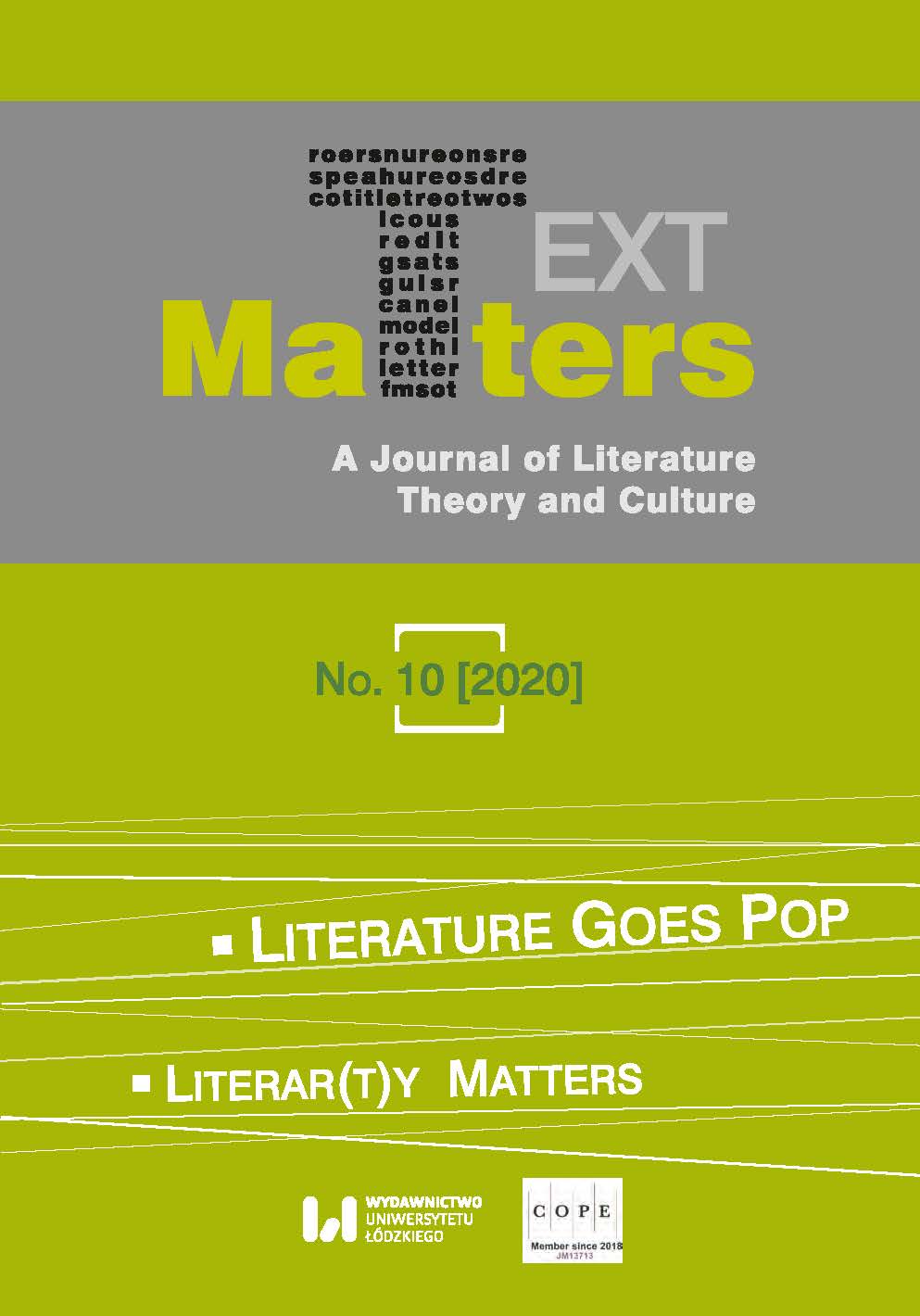L’homme agissant and Self-understanding: Pamela Sue Anderson on Capability and Vulnerability
DOI:
https://doi.org/10.18778/2083-2931.10.01Keywords:
capability, self-understanding, Pamela Sue Anderson, Paul Ricœur, vulnerabilityAbstract
This article addresses Pamela Sue Anderson’s philosophy of capability and vulnerability as an important contribution to the advancement of today’s feminist ethics. Following Paul Ricœur’s hermeneutics of l’homme capable, Anderson extends the phenomenological perspective of the capable human subject to embrace the distinctly feminine capability. She advocates for women’s recognizing and re-inventing of themselves as capable subjects, and claims that the perturbing initial loss of confidence in their reflective capacities can be redeemed via the transformations in women’s emotional and religious lives, as well as through their creative impulse. Locating in hermeneutics’ openness to ambiguity, incompleteness and insecurity a potential to unveil the non-transparent aspects of the assumed male-female equality, Anderson focuses on the interlocking aspect of human capability and vulnerability. She calls for transforming an ignorance of vulnerability into an ethical avowal of it. In reconfiguring patriarchal culture myths, Anderson sees the possibility of re-shaping our approach to vulnerability and capability, especially the human capacity for love.
Downloads
References
Anderson, Pamela Sue. A Feminist Philosophy of Religion. Oxford: Blackwell, 1998. Print.
Google Scholar
DOI: https://doi.org/10.1177/135583589800500910
Anderson, Pamela Sue.“Engaging the ‘Forbidden Texts’ of Philosophy. Pamela Sue Anderson Talks to Alison Jasper.” Text Matters 1 (2011): 312–28. Print. https://doi.org/10.2478/v10231-011-0021-8
Google Scholar
DOI: https://doi.org/10.2478/v10231-011-0021-8
Anderson, Pamela Sue. Introduction. New Topics in Feminist Philosophy of Religion: Contestations and Transcendence Incarnate. Dordrecht: Springer, 2010. Print. xi–xiv. https://doi.org/10.1007/978-1-4020-6833-1
Google Scholar
DOI: https://doi.org/10.1007/978-1-4020-6833-1
Anderson, Pamela Sue.“Lost Confidence and Human Capability: A Hermeneutic Phenomenology Of the Gendered, yet Capable Subject.” Text Matters 4 (2014): 31–52. Print. https://doi.org/10.2478/texmat-2014-0003
Google Scholar
DOI: https://doi.org/10.2478/texmat-2014-0003
Anderson, Pamela Sue. “Michèle Le Dœuff ’s ‘Primal Scene’: Prohibition and Confidence in the Education of a Woman.” Text Matters 1 (2011): 11–26. Print. https://doi.org/10.2478/v10231-011-0002-y
Google Scholar
DOI: https://doi.org/10.2478/v10231-011-0002-y
Anderson, Pamela Sue. “On the Boundaries of Intellectual Thought in Late Twentieth-Century Europe.” Dissolving the Boundaries. Ed. Dorota Filipczak. Łódź: U of Łódź P, 2001. 35–49. Print.
Google Scholar
Anderson, Pamela Sue. “Silencing and Speaker Vulnerability: Undoing an Oppressive Form of (Wilful) Ignorance.” Womeninparenthesis.co.uk. (In Parenthesis) 25 Mar. 2016. Web. 2 Jan. 2020.
Google Scholar
DOI: https://doi.org/10.1080/0969725X.2020.1717770
Chiari, Gabriele. “Recognition in Kelly’s Sketchy View of Personal Identity Construction.” Personal Construct Psychology at 60: Papers from the 21st International Congress. Ed. David Winter, Peter Cummins, Harry Procter and Nick Reed. Newcastle upon Tyne: Cambridge Scholars, 2017. 54–68. Print.
Google Scholar
Crosby, John F. The Personalism of John Henry Newman. Washington, DC: The Catholic U of America P, 2014. Print. https://doi.org/10.2307/j.ctt1287bv7
Google Scholar
DOI: https://doi.org/10.2307/j.ctt1287bv7
Filipczak, Dorota. “Unheroic Heroines.” The Portrayal of Women in the Writings of Margaret Laurence. Łódź: U of Łódź P, 2007. Print.
Google Scholar
Gadamer, Hans-Georg. Truth and Method. Trans. Joel Weinsheimer and Donald G. Marshall. New York: Continuum, 2006. Print.
Google Scholar
Goulimari, Pelagia, ed. Angelaki. Journal of the Theoretical Humanities. Love and Vulnerability: Thinking with Pamela Sue Anderson 25.1–2 (Feb. 2020). Print. https://doi.org/10.1080/0969725X.2020.171776
Google Scholar
DOI: https://doi.org/10.1080/0969725X.2020.1717764
Helenius, Timo. “The Will, the Body and Sexuality. Ricœur’s Hermeneutic Phenomenology of ‘Being Willing and Able.’” Paul Ricœur in the Age of Hermeneutical Reason: Poetics, Praxis, and Critique. Ed. Roger W. H. Savage. London: Lexington, 2015. 191–210. Print.
Google Scholar
Kearney, Richard. “Ricœur’s Wager of Flesh: Between Phenomenology and Hermeneutics.” Paul Ricœur in the Age of Hermeneutical Reason: Poetics, Praxis, and Critique. Ed. Roger W. H. Savage. London: Lexington, 2015. 179–90. Print.
Google Scholar
Le Dœuff, Michèle. Hipparchia’s Choice: An Essay Concerning Women, Philosophy, etc. Trans. Trista Selous. New York: Columbia UP, 2006. Print. https://doi.org/10.1111/j.1468-0149.1993.tb00757.x
Google Scholar
DOI: https://doi.org/10.1111/j.1468-0149.1993.tb00757.x
Love and Vulnerability: Reflections on the Work of Pamela Sue Anderson Conference. Oxford University 16–18 March 2018. Philosophy.ox.ac.uk. Faculty of Philosophy, University of Oxford. Web. 30 Dec. 2019.
Google Scholar
Merleau-Ponty, Maurice. Phenomenology of Perception. Trans. Colin Smith. London: Routledge Classics, 2002. Print. https://doi.org/10.4324/9780203994610
Google Scholar
DOI: https://doi.org/10.4324/9780203994610
Nussbaum, Martha C. Love’s Knowledge: Essays on Philosophy and Literature. New York: Oxford UP, 1992. Print.
Google Scholar
Ricœur, Paul. “Autonomy and Vulnerability.” Reflections on the Just. Trans. David Pellauer. Chicago: U of Chicago P, 2007. 72–90. Print.
Google Scholar
Ricœur, Paul. Freedom and Nature: The Voluntary and the Involuntary. Trans. Erazim V. Kohak. Evanston: Northwestern UP, 1966. Print.
Google Scholar
Ricœur, Paul. Oneself as Another. Trans. Kathleen Blamey. Chicago: U of Chicago P, 1992. Print. https://doi.org/10.1017/S0034412500023003
Google Scholar
DOI: https://doi.org/10.1017/S0034412500023003
Ricœur, Paul. The Conflict of Interpretations: Essays in Hermeneutics. Ed. Don Ihde. Trans. Willis Domingo et al. Evanston, IL: Northwestern UP, 1974. Print.
Google Scholar
Ricœur, Paul. The Course of Recognition. Trans. David Pellauer. Cambridge, MA: Harvard UP, 2005. Print.
Google Scholar
Wierciński, Andrzej. Existentia Hermeneutica. Understanding as the Mode of Being in the World. Zürich: LIT Verlag, 2019. Print.
Google Scholar
Wierciński, Andrzej. Hermeneutics of Education: Exploring and Experiencing the Unpredictability of Education. Zürich: LIT Verlag, 2019. Print.
Google Scholar
Wierciński, Andrzej. “Phronetic Education to Integrity. Capability, Courage, and Passion for Thinking.” Phainomena. Journal of Phenomenology and Hermeneutics 28.110–111 (2019): 5–15. Print.
Google Scholar
Downloads
Published
How to Cite
Issue
Section
License

This work is licensed under a Creative Commons Attribution-NonCommercial-NoDerivatives 4.0 International License.













